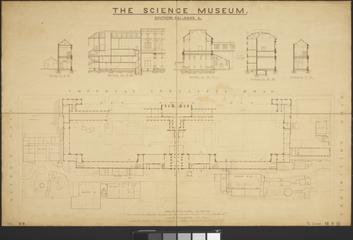
John Palmer interviewed by Gordon Pettitt
- Made:
- 2013-06-18 in Woking
- maker:
- Gordon Charles Pettitt
Video oral history interview with John Palmer conducted and recorded by Gordon Pettitt on 18 June 2018, at the interviewer’s home. Duration: 2 hours 13 minutes. [Track 01] Career in Civil Service start 1952 to Head of Railways Directorate in 1976; challenges; creation of Department of Transport (DoT), identifying what was the job, frustration with British Rail, question if rail was declining; [00:04:30] business tackled; pigeon carriage, British Railways Board (BRB) St. Pancras-Bedford development investment proposals, re-signalling issues; [00:07:00] developing DoT and BRB relationship; [00:09:00] Transport White Paper, supported by DoT, not by BRB; [00:12:30] Joint Study of Electrification; Steering Group, opposing views of BRB and DOT, issues, political approach, conflict between DoT and BRB; [00:20:50] Impact of change of Government; BRB concerns, review of railways committee chaired by Sir David Serpell; [00:26:30] review outcome, Serpell Report; [00:31:00] questioning network efficiency, lack of feedback from Serpell report, conflicts within committee; [00:37:00] positive outcome from Serpell report; press conference; network maps concerns; end of Peter Parker’s BRB chairmanship, appointment of Bob Reid 1 (BR1), Nicholas Ridley (NR) Minister, 3 years plan for railways; good rapport between BR1 and NR, East Coast electrification; relationships between NR and Margaret Thatcher; [00:43:00] managing railways decline, moving towards a business led efficient railway, freight contracting; uneconomical passenger services, obstacles to closures, Bill Roger’s White Paper, Norman Fowler (NF)’s view of closures, resources for closures; [00:50:40] DoT Civil Service attitude; oil crisis impact on money to be transferred from road schemes to railways; no anti-rail lobby in the DoT; introduction of public obligation service grant, BRB reaction, challenges [00:59:59] [end of track 01] [Track 02] DoT and BRB relationship; fare change example; Ministers wanted railways run like a business; [00:06:10] NF appointed Secretary of State; NF and Peter Parker relationship; [00:08:30] privatisation politics, not part of Conservatives’ 1979 manifesto, railway’s privatisation considered after British Telecom's privatisation, suggestions for mini-privatisations, Slough-Eaton Riverside example; [00:13:40] DoT and Treasury relationship, only DoT dealt with BRB; impact and action taken due to economy recession, DoT information leak to BRB to address recession; after British Telecom privatisation and other industries Treasury focused on the railways privatisation; [00:20:30] Minister of Transport’s powers; St. Pancras- Bedford electrification; [00:22:10] DoT freedom in dealing with BRB, exceptions; dealing with strikes, conflicts examples; [00:28:00] changes with Thatcher government; BRB’s link with government, conflicts BRB and Unions; change to Labour Government, legislation impact on BRB and Unions relation; [00:31:30] changes following appointment of BR1, relationship with DoT [00:36:40] financial settlement; Quality Objectives introduced; Commuter Charter; [00:39:00] impact of changes Secretary of State (SoS), comments on different SoS; [00:45:30] Safety on the Railways; JP responsible for effectiveness of Railway Inspectorate, proposal for transfer of Railway Inspectorate transferred to Health and Safety Executive but maintained under DoT; [00:53:30] personal achievements at DoT; East Coast Electrification, railways changed to business led organisation; [00:56:30] latency from Conservative before privatisation took off; [01:01:20] JP joining BR, work on Channel Tunnel; [01:05:20] comparison between civil service and BR work; JP views of privatisation process; being removed from Channel Tunnel role, remaining as an adviser on privatisation; lawsuits; JP views of BRB on privatisation; JP focus ensuring that railway managers knew how to set up a bid as part of privatisation [01:13:34] [end of track 02] [end of interview]
Oral history recording made in continuation of the NAROH project (National Archive of Railway Oral History), recording stories of people who worked on the railways